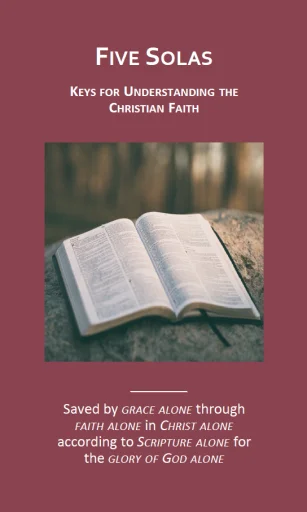Me: Let’s talk about your church. My dad was a pastor, so I’ve been in a lot of churches over the years, but since being on my own I probably have been in two or three different ones. The first church I became a member started me out in my first committee, on evangelism. It was interesting because I’ve always been mission minded. What I experienced there is what I see in a lot of other churches, evangelism seems to be an add-on, another program, something that a committee does. Churches often see the Great Commission and want to do something, but they struggle with what to do. It’s usually treated as something separate.
You are in a church plant, where evangelism is central to what you do. You are a pastor in the church, but you are out on the street too. What’s different, how can churches learn from what you’re doing to be more engaged in evangelism as a core part of your purpose.
Brady: I definitely understand what you’re talking about as far as programs. As for our church, when we were talking about this plant we didn’t realize that God was going to start us out with such a healthy group of believers. The charter members, we’re all on the same page doctrinally and in our understanding that evangelism needs to be intentional and our desire to evangelize. I lead by example, but I don’t have to twist any arms. It’s the people God has given us that is just such a blessing.
Our church has about 27 people, counting kids. We have two or three families visiting now. Almost all of the adults and almost every family has been out on the street helping at some point. They have a desire and we’re not having to convince them that this is biblical. They are in full support, if they can’t go with us they will pray. We have 5 guys in our church that have open-air preached.
That’s encouraging! After doing it for so long by myself, maybe an occasional person would join. Now there’s hardly ever a time that I’m out there by myself. For the past year there’s been two or three young guys that I’ve been able to disciple. They really want to start open-air preaching and they want us to watch them and to correct them. It is very good, they are very humble and teachable. Now, if they plan to go here or there, and I can’t go, they are fine without me. When you’re in leadership, especially pastoral leadership, I think the best thing you can do is to lead by example. I tell others, “I’ll never ask you to do anything that I’m not going to do.” I’m not always doing it perfectly, and not always consistently faithful, but trying to lead by example. I don’t put pressure on people to go and do this, or do that. I remind them that street evangelism is what I’ve been involved in and that’s where I’m comfortable and what I love doing. I am wired to do it but it’s not only about street evangelism. I encourage others to be intentional and engage people with the gospel. Mothers with your children, with your family and friends, and your neighbors. I always put that out there to be intentional.
I am very open about it, when I go out we need prayer. It’s definitely not an add on. I try to keep the gospel even from behind the pulpit, I try to preach the gospel, no matter what else. Whatever I’m preaching, it is always evangelistic. The gospel is always being proclaimed from the pulpit no matter what other doctrine or passage of scripture we’re dealing with. I lead our congregation and everybody realizes that’s why we’re here. We are here to preach the gospel. We try to make sure the gospel is coming from our pulpit regularly. On occasion I’ll teach a message just on evangelism. Even when that’s not happening it’s a regular theme.
We have a prayer sheet, it’s a general prayer sheet that doesn’t change. Wednesday night we have prayer and Bible study and we pray for what’s going on in our lives and we’re always praying for these evangelistic ministries. Somebody in our church is usually preaching somewhere outdoors every week, so we need to bath these things in prayer. I encourage people to pray over these things. I just told them today, my plan is to go to the bus station on Thursday. It’s my day off and not everybody can make it out there with me. We need to be going out and we need to be bathing it in prayer.
Me: We understand the importance of prayer but your evangelism can’t stop there. It is good that your sermons regularly touch on the gospel message itself. Last weekend we brought Eddie Roman in from Way of the Master and he taught Evangelism Basics. In his training he defined what the gospel is. Many Christians hear and know a lot of things in the Bible, but often cannot articulate a clear crisp gospel message. That is important to hear the gospel in your church on a regular basis as a reminder of what Christ has done. We need repetition so we can speak clearly to others what the gospel is. It is so important to hear, whether you are new to Christianity or mature in your faith.
You said, “we want to be intentional about our evangelism.” What are some of the ways you encourage others to do that?
Brady: I encourage them to hand out tracts, not just when we go out. The thing about tracts is that you’re giving them the gospel. We keep a bunch of tracts at the church and I encourage people to take them as they need them. You’re giving someone the gospel to take with them. Tracts can be in your home and others can read them. Tracts are wonderful for starting a conversation. I share examples on my job or in 7-11 to simply offer a tract to somebody. I remember one lady saying, “oh wow.” My tract asks, “Are you ready?” it’s pretty direct. I had another say “Oh, my goodness, I was just at a funeral this morning and I’m really thinking about this.” I really don’t know how many people are handing tracts out regularly, but I really encourage that.
I also encourage them to go out to the streets. It gets you excited about the gospel when you go out to hand out tracts and engage with others. When you do that it can lead you to be more faithful in your everyday life. Just witness as you go, when you get an opportunity. We have a couple of younger guys, one of them is a police officer one is an electrician. They encourage me probably as much as I encourage them. We have developed a culture where people know that we are to be intentional and engaging others with the gospel.
You’ve probably been in a situation where you get excited about sharing the gospel, then you tell others and ask for prayer, but they can really put the fire out. We counteract that and build a culture where people know that we’re going to be excited about hearing that and we’re going to pray for those people and lift those people up by name. They also see that I’m honest and say, “hey guys, I’m struggling. I see guys sharing the gospel on their job and I’m struggling because I don’t get those opportunities.”
They see for me that it’s not an add-on, its in my preaching. I don’t just preach for 45 minutes and tack the gospel on the end, it’s central. We know we are wretched, we are teaching them what the gospel is continually. I’ve only been a pastor for a year but for the first 23 years of my Christian life whenever I would hear strong preaching that is gospel-centered that speaks on judgment, and hell, and the need for repentance and Christ, who He is and what He’s done, that for me is the motivation I need. A reminder of the greatness of the gospel and the dangers of judgment, and the reality of God. He’s holy and he’s going to judge and His wrath abides upon sinners. Keeping those things central in our preaching at the church keeps it on people’s minds.
Our worship leader is one of the young guys who preaches with me now. He does a great job when we’re singing and he’s leading worship. When he’s reading the scripture before a certain song it reminds us all of God’s wrath, and Christ, and how we need the gospel, it’s just by the grace of God. We’re developing a culture where the gospel is central. In the long term that’s what’s going to be effective, encouraging the saints for works in ministry.
Me: You triggered a couple thoughts. The Great Commission is about evangelizing, it’s about bringing the gospel and making disciples. As a parent, you do that with your children. It’s not just the pastor in a church or someone out on the streets. It’s a culture in all things.
You mentioned that you’ve written a tract. I’ve written some tracts specifically around our town and its Christian history. One thing I’m trying to get a handle on is from a reformed theology perspective, what makes a good tract or a bad tract? They are not all equal.
Brady: About seven or eight years ago I first wrote a tract and I’ve edited it over the years. I know that there’s all kinds of tracts, there are short little tracts, just on the back of a card. There are also pamphlet tracts like mine, which are a little longer, about 1500 words. There is only so much you can do in a tract without writing a book.
You need to start with some sense of who God is, it should tell about His Holiness. The quickest and easiest way to communicate the holiness of God is to open up the Law. Explain the Law, especially its spiritual nature, like Jesus did in the Sermon on the Mount. Open up the law, such as lust and idolatry. We need tell the reality that God is good and we are not. God is holy, we need to understand how unholy and unrighteous we are. God is just by His nature, He’s just, He’s righteous and He has to punish sin. Because He’s good he’s got to punish sin and the reality of hell. Then you shift to His grace, His mercy and His love demonstrated by sending his son to die for you on the cross.
I like to show that He died for those who believe, those who repent, not for everybody. We need them to understand the person and work of Christ. What is the gospel? It is Christ. Tell of His deity, who He is, born of a virgin, His sinless life, that He is fully God and fully man. His life is really getting to the heart of the gospel. His substitutionary death. Then turn to repentance and faith and that we are saved by grace through faith.
When I wrote my tract, I thought,
We are saved by grace through faith. A tract should be loaded with scripture references. In my tract, some of them are written out, and when they are not, the references are there. I tell people when I give them the tract, “go read the scriptures.” I may have one verse written out and three or four other references because that’s where I want people to go. From a reformed viewpoint stay away from the sinner’s prayer by all means. Encourage them to seek Christ, repent, believe, cry out to God, but don’t write out a prayer and have them repeat these words.
Me: Yes, Eddie went through the gospel, centered around 1 Corinthians 15. Then he compared it to the sinner’s prayer and asked, “do you see the gospel in here?”
Brady: When you don’t have a lot of space, stress the fact that Christ is coming back. He’s coming and what are you going to do with Him? He says you’re either for him or against him it’s just that urgent. Not only has it been appointed for a man to die but also to face judgement. I would include all these things down to repentance and faith in God. We do preach for a response! You need to respond to God, one way or the other, that’s very important. Seek the Lord while he may be found. Man is like a breath, his days are like a passing shadow, you might not get tomorrow. Stress those things and cry out to God.
You don’t have much space do this but, at the end on the last little section, I really wanted to give a picture of what it looks like for those who do come to Christ. How we’re made into a new creation, this is the evidence that God makes you a new person, that those who come to Christ will not continue to live a lifestyle of sin. When I wrote my tract, I was reading some of MacArthur’s writings on the gospel and I wanted to emphasize more than just repentance and faith but that there will be evidence in your life when you’re born again.
Tracts can go in a million different directions. You must communicate the gospel. One great thing about the conference we went to was that Jeff Pollard was preaching a message on tracts. He said, “God’s Word is infallible but He uses fallible tracts and fallible preaching to accomplish his purpose.” That was encouraging because I know I try to be very biblical in the tracts that I order or that I write, but I know it can be so much better.
Me: You mentioned three or four guys in your church that have gone out to open-air preach with you at times. When you get someone who’s interested, what are the things that you do help prepare them or train them?
Brady: I tell them first of all, “Know your Bible.” I tell them to be yourself, don’t try to emulate somebody else. You can learn from others, but don’t try to be somebody else. Don’t try to be Jeff Rose or Ray Comfort or anybody else, just be who God made you to be because when we do that, it just becomes very mechanical and it doesn’t glorify God.
Consider the crowd, the crowd changes continually. I’ve heard Spurgeon talk about this, that you have to be aware that you’re not just sitting there preaching to a static audience. When I preach, it may be 10 minutes on nothing but the Law, God’s holiness, grace, and repentance all intermingled continually because the crowd is constantly changing.
If I see a group of people sitting and listening for a while, I can hone in on them. Shylo, one of these guys that goes out with me once in a while, he does a great job. One time he was preaching in an area where he didn’t have people there for long. It was almost like stop-light preaching, maybe a couple short minutes. Everything he was preaching was great, but it was all Matthew 7, “not everyone who says to me on that day, Lord, Lord”. This is a good passage, people in our culture need to hear it. I just told him, “You’re doing great. Everything you’re preaching is good, Matthew 7 is good.” but you need to go to the cross. People need to hear these warnings, but we want to let them know the heart of the gospel. I haven’t had a lot of correction to give them, two of them are young, they all have pretty solid doctrine.
Shylo, a lot of times he starts reading. It’s nighttime and uses his iPad and he reads scripture and bounces off of that. We’re out here preaching the word of God and the gospel is powerful, that’s what they need to hear, just be faithful in communicating the gospel. Show who Christ is and what He’s done, and to repent, to believe, show his death, burial, and resurrection. We need to stress the resurrection; I think it gets overlooked too much. He has risen, that’s why we have hope. He defeated death, hell, and the grave. He defeated our biggest enemy.
Me: What I’m hearing thematically is: lead by example, provide lots of encouragement, opportunity and correction. Always remember a call to respond, take them to the cross and call them to repentance. This is not just education or information, it is preaching and asking them to make a decision, what are you to do with Christ?
Brady: When you are preaching look people in the eye. Don’t preach impersonal, try to make eye contact, read their body language. When you see someone that is engaged, tune in to that. Some are mockers, I like them, it’s great to engage them. You need to be personable in some sense. You are representing Christ, you need to know the word and know your doctrine.
I have a great story about how God uses this type of ministry in raising up others. I don’t know if you’ve seen any of the videos where I preach to the Hebrew Israelites here on the streets. About two years ago, I would setup near these guys because they draw a crowd. One night, we had a crowd and there was a Hispanic guy, a bit younger, around his 30s. I could tell he was a believer, he had great joy on his face at the message I was preaching. A little while later my wife brought him over and he had seen her video and talked to her and she introduced him to me. Yes, he was a believer and he said, “I want to do this, I really want to do this kind of ministry.” So, he picked my brain, I showed him the amp that I use and talked to him for 15 minutes and we parted. I never saw him again until about a year later before we planted our church. We went to the gay pride parade in Oklahoma City for the first time, I never realized how big it really was. There were 6 of us on our way out, one guy had gone ahead of us, he called us and said, “there’s already someone out here.” It turns out that was the same guy, Diego. We made eye contact, he smiled at me while he was preaching, he even pointed at his amp, which was the same one I had. I listened to him and told him after that he was doing a great job. He has preached with us several times over the past two years.
Me: We had an outreach last week and if you have time there are several videos that I posted from the speakers. One of my favorites is the Q&A session called Hard Questions with the speakers in a panel session. We touched on this topic, with each of the speakers talking about how evangelists tend to feel alone in their church, they are the only ones active in this way. A theme in the responses was encouragement to be faithful and God is going to grow that.
Part 1: Profile
Part 2: Bus Station Ministry
Part 3: Evangelism Centered Church
Part 4: Closing Thoughts and Encouragement
 Are Christians inconsistent if they are not Vegan?
Are Christians inconsistent if they are not Vegan?
 Do I have to be an extrovert to share the gospel?
Do I have to be an extrovert to share the gospel?
 City of Refuge Pamphlet
City of Refuge Pamphlet
 Five Solas Business Card
Five Solas Business Card